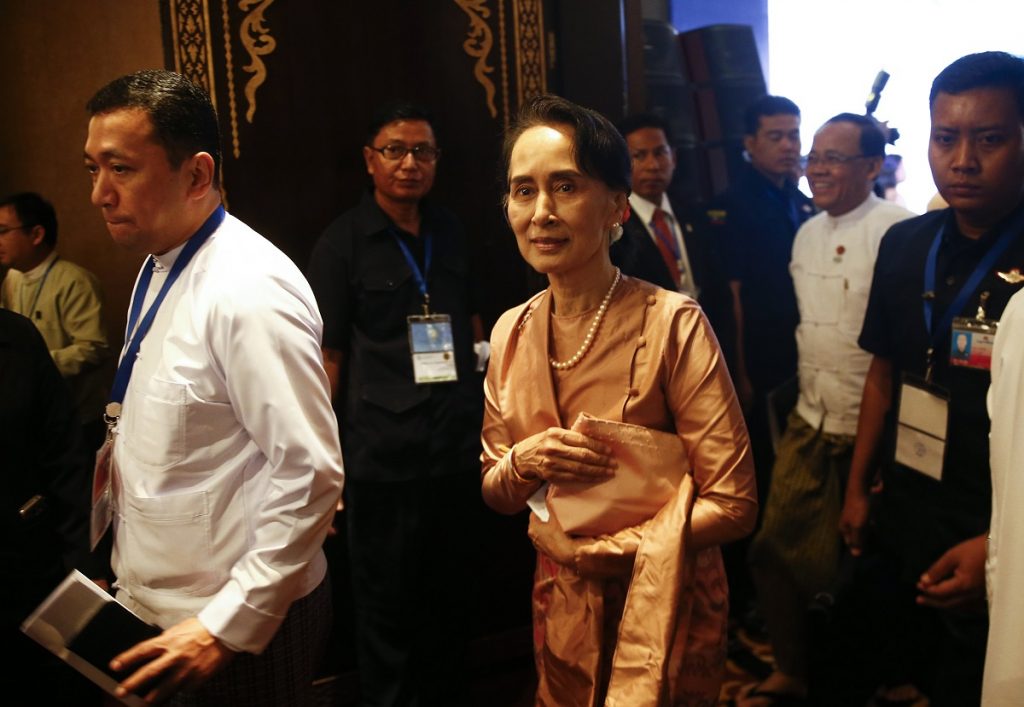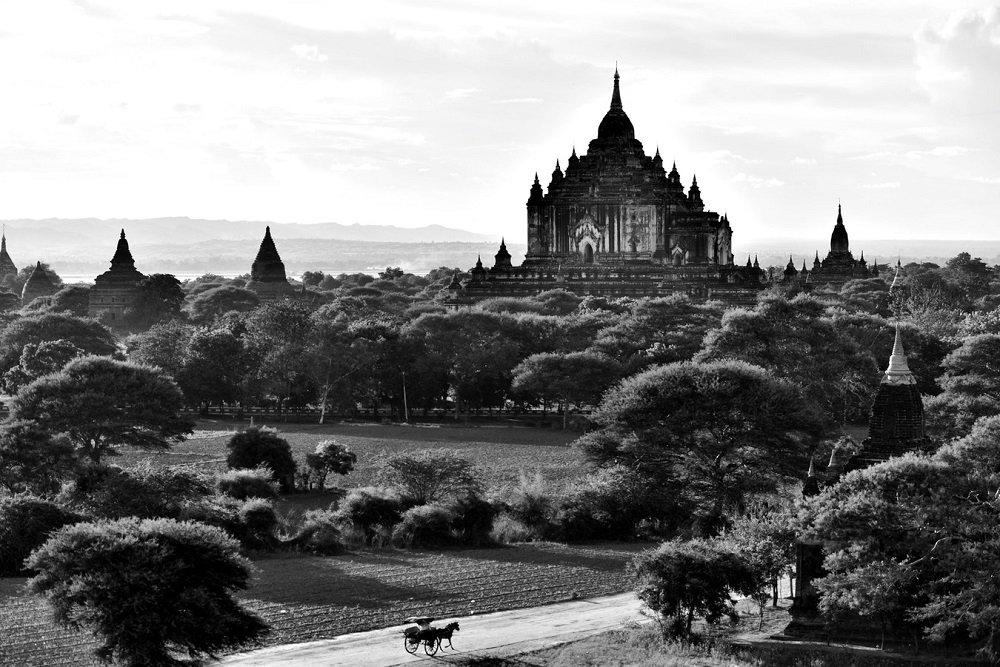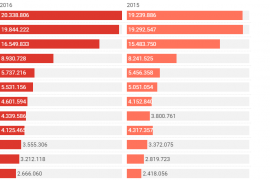[dropcap letter=”M”]
yanmar, formerly Burma, is one of the six states crossed by river Mekong, a wide, turbid and quiet river that acts as a natural boundary on the south east. The country rests on three silences. The silence of the stones along the magnificent Valley of the Temples of Bagan, the silence of fear that blinds its people and shrouds them with weakness and silence of contemplation, meditation and relaxation.
The silence of the stones is worth a leisure visit and, at least, one sunset from the top of one pagoda, which for strange historical circumstances, someone considered dispensable.
The second silence, caused by fear, has been accompanying them for the last 200 years. Before 17 July 1947, when a group of armed paramilitaries assaulted the meeting held by the Executive Council of Myanmar (to prepare for the transfer of power after independence) everything indicated that the old taciturn was about to be defeated. But during meeting the President Aung San and six of his cabinet ministers were assassinated, and the silence, deep and dark, came over again. Forty years later, the youngest daughter of the president assassinated, Ang San Suu Kyi, returned to Myanmar to tend for her ailing mother. She was then 42 and, unexpectedly, was submitted under a new revolt aiming for openness of a country, stagnant in an intricate ideological repertoire described by News Week as a blend between Buddhism, Marxism and superstition –February 1974.

The uprising was started by Rangoon students (nowadays Yangon) on 8 August 1988 –the 8888 uprising– and protests quickly spread throughout the country. A few days later the uprising ended and the silence came over as the military cracked down the movement. Despite the landslide victory of San Suu Kyi’s party in the 1990 elections, they live in fear. Given the choice of either staying in Myanmar or going back to her family, the activist decided to stay in the country. This decision has earned her extensive recognition and awards, among them the Peace Nobel Prize. Despite this, internationalization of the conflict led the military Junta to take measures and submit the activist to 15 years of home arrest. Thrown into poverty and misery on being placed under house arrest in a dilapidated residence, San Suu Kyi surrendered herself to the third of silences, by practicing the ideology of Gandhi’s non-violence and Buddhism. However, in the last few years, the virtuous silence of San Suu Kyi and, in general, that of the Buddhist community has been altered by news that have just been released to the press, which have questioned the coherence of the Burman process. They are accused of obstruction and complicity with the repression against tribal groups from the country, especially the repression against the Rohingya people, the Muslim ethnic group. When the media and the international community have asked for explanations to San Suu Kyi, the Peace Nobel Prize has argued that this is a current of opinion –to be specific, she has blamed “terrorists” for an iceberg of misinformation– that favours the interests of Islamic terrorism. I also asked about this topic to the population during my stay in the country but all the questions ended up in a cul-de-sac of apprehension.

The map of former Burma is a cluster of culs-de-sac, crisscrossed with a network of paths shut to the traveler for reversed reasons in a wild and beautiful territory. Still, it is possible to access remote villages. One of these villages is called Kyuat Su, from the Pa-Oh tribe, meaning “cracked eggs”. Legend has it that the Pa-Oh come from a crossing between a man and a she-dragon who, on ignoring who the other is because of darkness, for a while lived together in a cave and gave birth to two eggs. The eggs were abandoned when they found out their incompatibility and were later moved to a Buddhist monastery by two monks who found the eggs by chance.
I arrived in Kyuat Su when it was getting dark. It was cold and raining. I was put up by Ta and May, him 64 and her 88 years of age. I was offered an extraordinary dinner and then sat by the fireplace in the main hall. They told me that they were pleased because the government had promised that, in the next few months, the village would have electricity for the first time in history. They were telling me about it as if electricity would transport them into an orbit of unknown happiness. At the end of the evening, inside the blankets covering the mattress laid out on the bamboo floor, I heard their conversation coming from the room next door. They were talking calmly. The tone indicated that they were chatting. His turn, her turn. Maybe they were talking about how they had spent their day. Sometimes they laughed. I don’t know if we all fell asleep at the same time. That peace settled the third pillar of former Burma, near the silence to which San Suu Kyi had managed to achieve during her house arrest. But I’m afraid that the irruption of electricity in Kyuat Su will upset the village and alienate it from what one day can become the new Myanmar.




















